Mercedes-Benz didn’t start using the C-Class designation until the 1994 model year, when the first W202-platform cars arrived in showrooms. The W202’s C-Class-in-all-but-name predecessor was the very successful W201, sold here for the 1984 through 1993 model years. In this series, we’ve seen an example of the most common early variety of U.S.-market W201, the gasoline-fueled 190E, as well as a later six-cylinder 190E 2.6. Today, we’ll look at a type of W201 that few North American car shoppers purchased: a diesel-engined 190D, found in a Northern California car graveyard last fall.
With the gasoline shortages caused by the 1973 and 1979 oil crises, a small but significant number of Americans bought new diesel cars (diesel fuel being cheaper and often easier to find than gasoline when fuel shortages struck). Mercedes-Benz sold the best such cars available here, and Stuttgart oil-burners became legendary for their build quality and reliability.
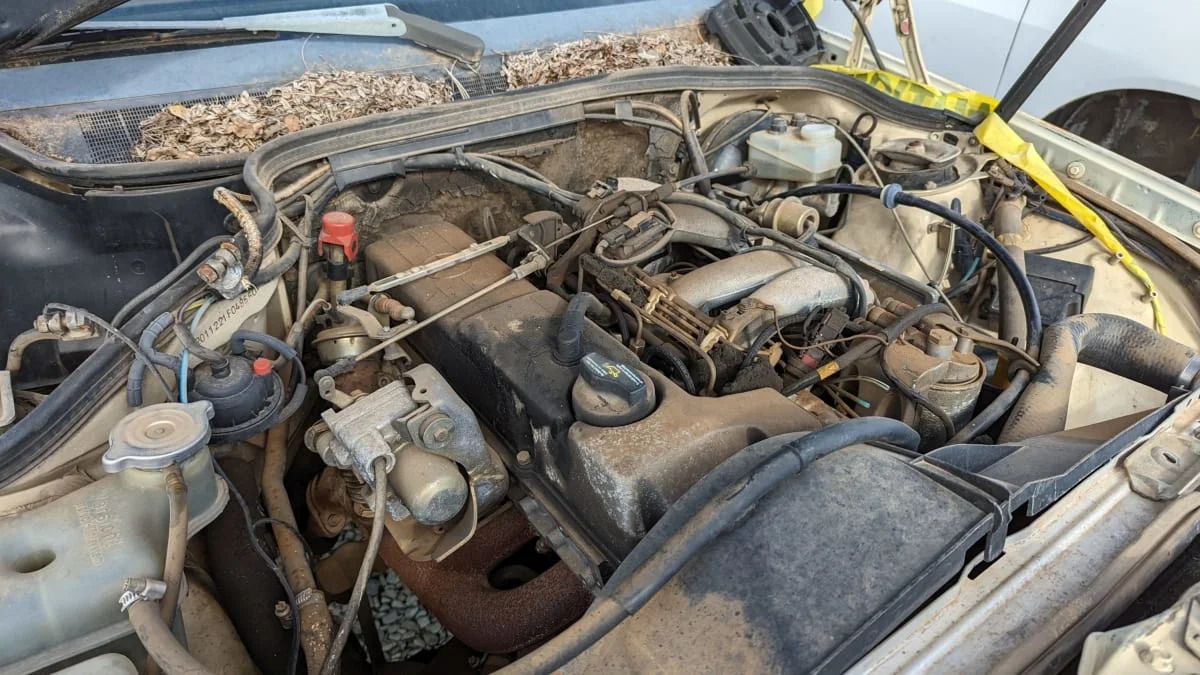
In the middle 1980s, however, an oil glut sent gasoline prices crashing to earth. Mercedes-Benz shoppers in the United States still bought some new Teutonic land yachts with big turbocharged diesel engines and decent performance, but many of those who had experienced the terrifyingly slow 240D proto-E-Classes during the dark days of the 1970s weren’t in the mood to buy a small luxury sedan with oil-burning horsepower in the double digits. The original buyer of this car didn’t feel that way, though!
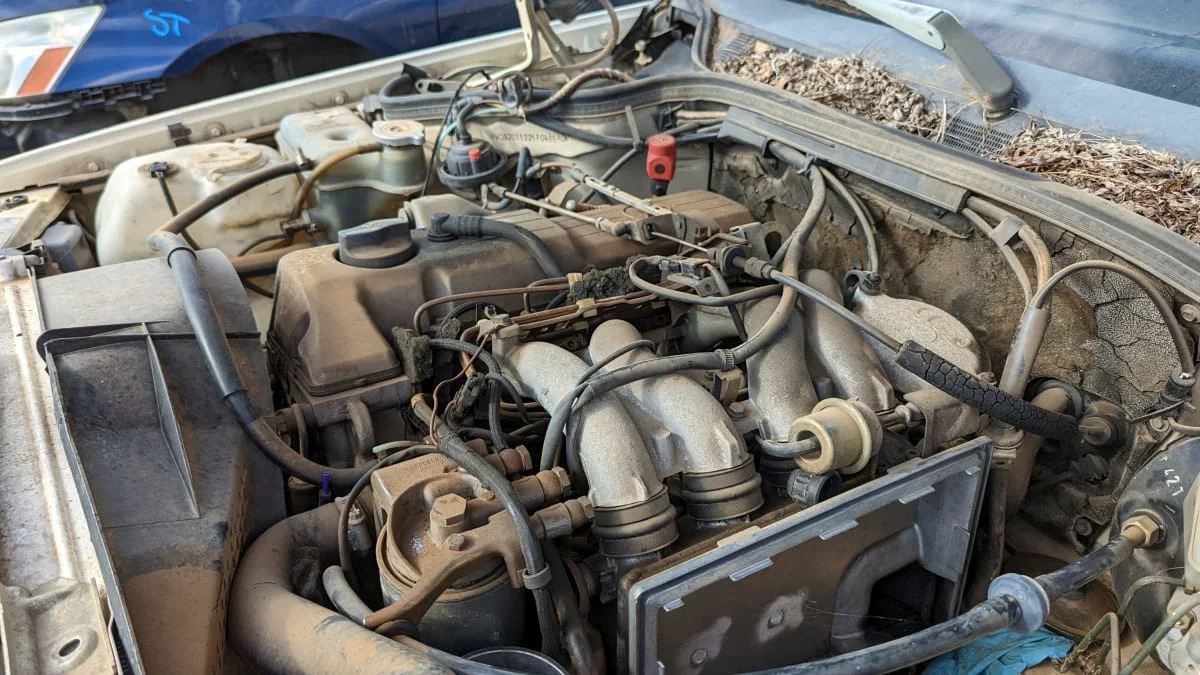
This is a naturally-aspirated 2.2-liter OM601 straight-four, rated at 72 horsepower and 96 pound-feet in this application. The (slightly) cheaper 1985 190E got 120 horses and 133 pound-feet from its 2.3-liter gasoline-fed engine. 1988 was the last year for the diesel W201 in the United States.
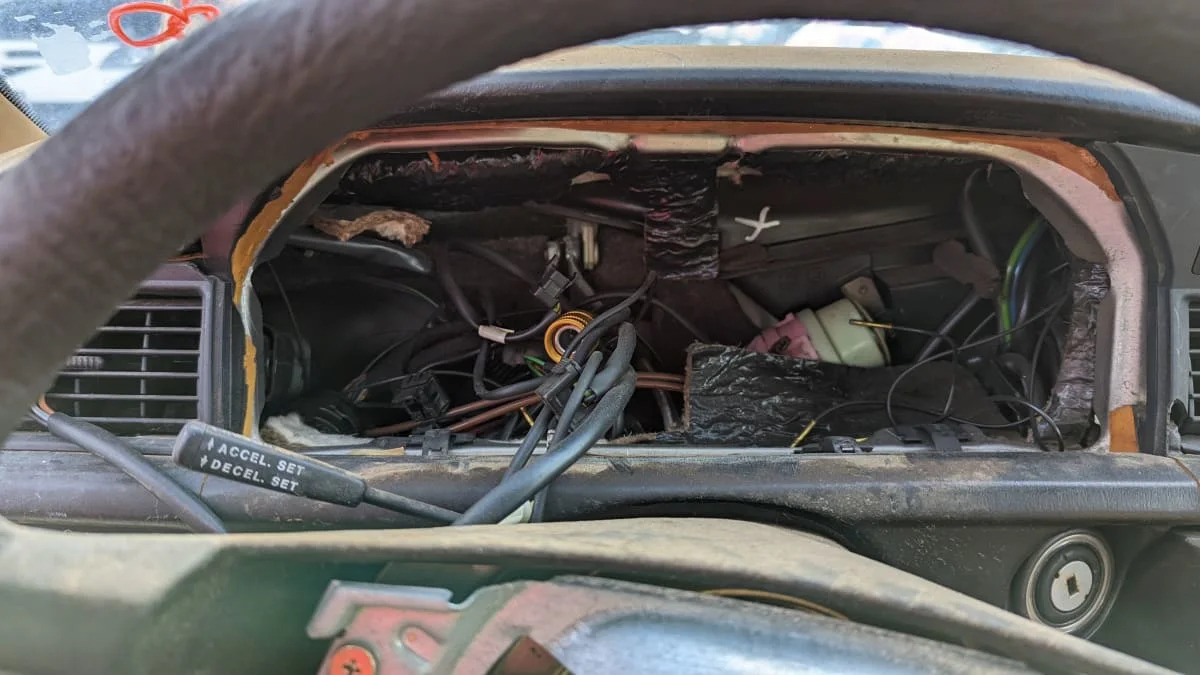
How many miles were on this one at the end? We’ll never know, because a junkyard shopper bought the entire instrument cluster before I arrived, but I’ll wager that it was plenty. Mercedes-Benz diesels of this era tend to rack up some amazing mileage totals.
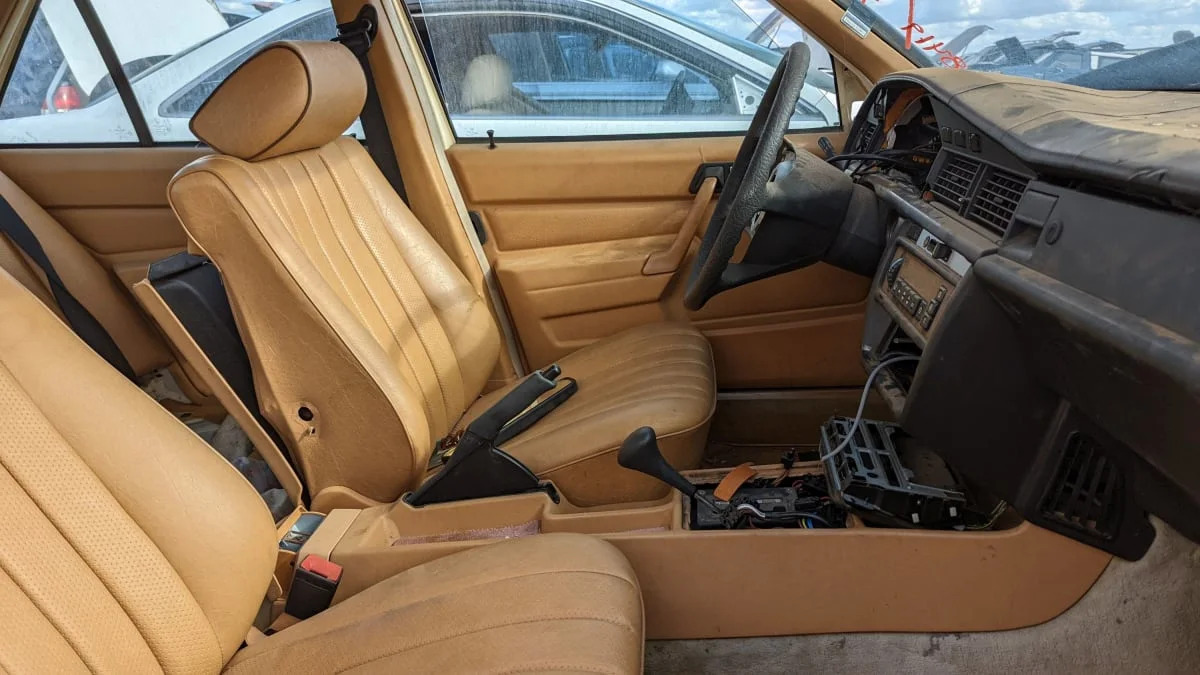
That said, the highest-mile Mercedes-Benz I’ve ever found in a junkyard was a 1987 190E in California with better than 600,000 gasoline-driven miles on the clock.
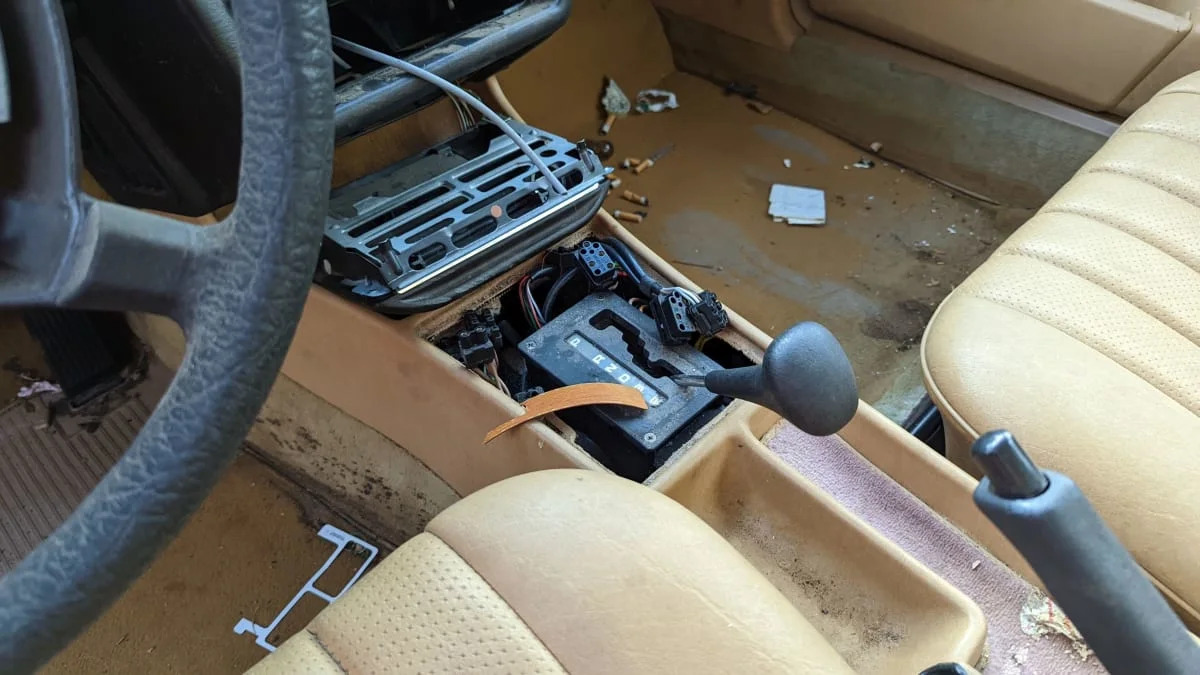
That car had a manual transmission, however, while this one has the four-speed automatic.
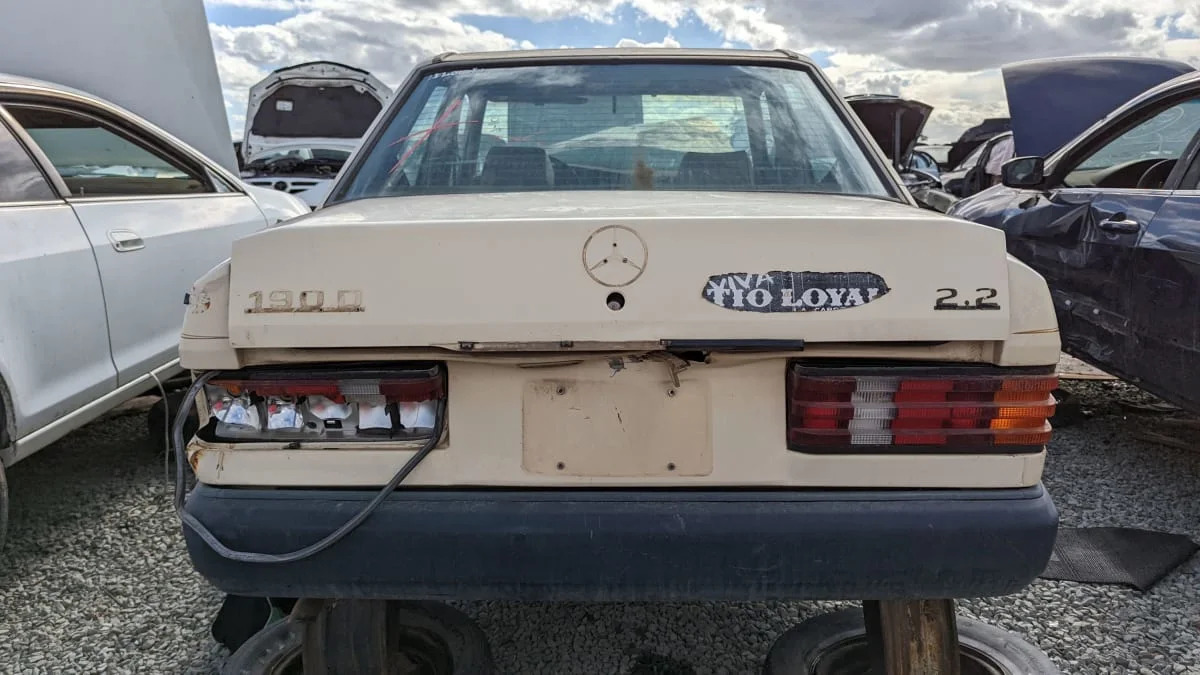
The MSRP for this car with automatic transmission was $23,810, or about $68,638 in 2023 dollars. The same car with gasoline 2.3 and automatic listed at $23,370 ($67,369 in today’s money). Meanwhile, BMW would sell you a new E30 325e four-door with automatic for $21,700 ($62,555 now).
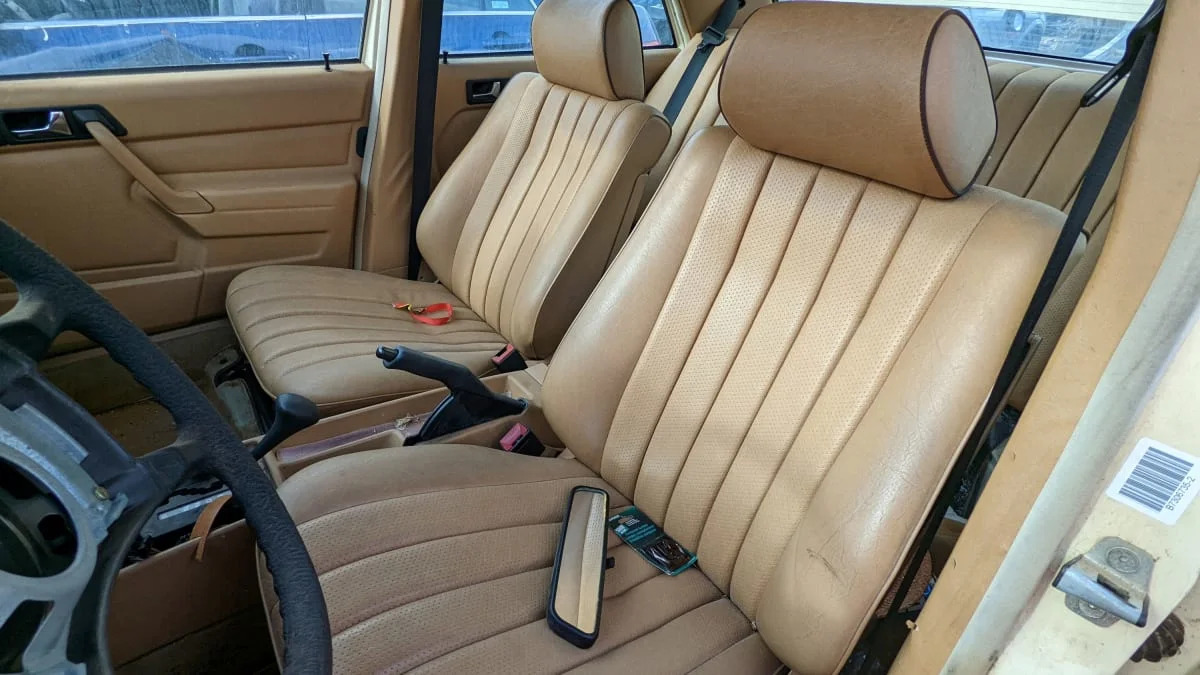
The interior in this car looks to have been pretty nice when it arrived in its final parking space. So, what happened?
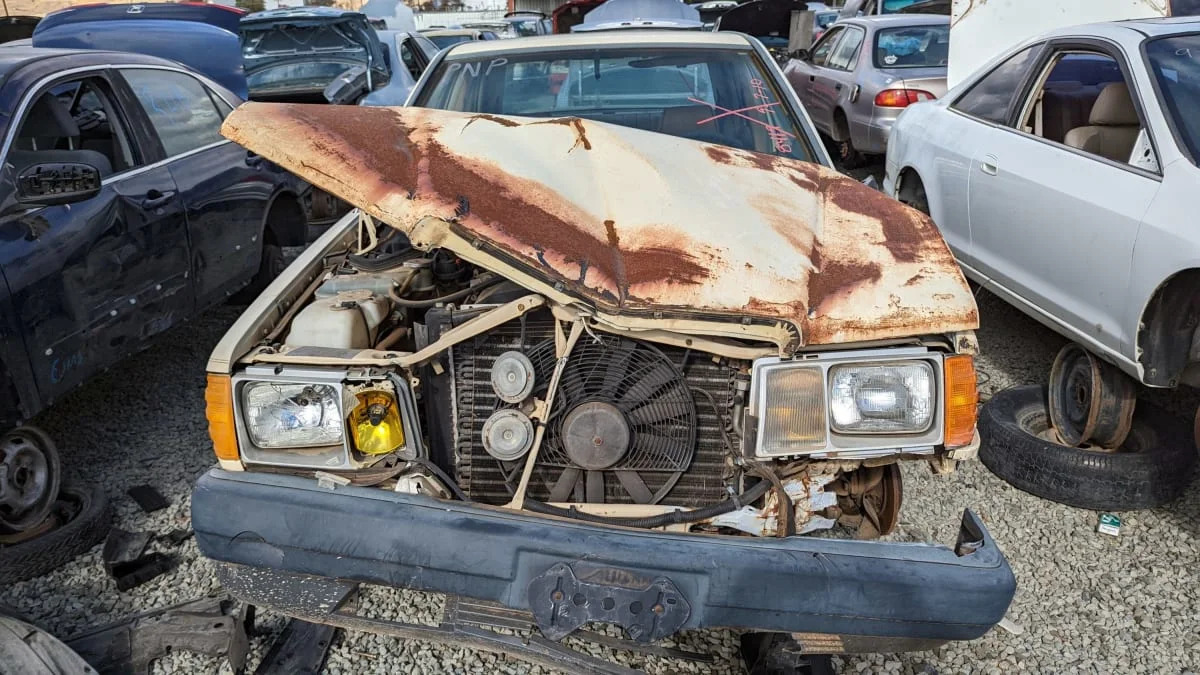
It got crashed hard, then sat outside in a bent-up condition for enough years to rust the hood. The powertrain might have been good when it drove to the wreck, but sitting for years or decades with a non-sealed hood isn’t good for engines.
The W201’s advertising in the United States didn’t say much about the diesels. Here’s an ad for the hot-rod 190E with 16-valve Cosworth cylinder head.
So futuristic!
Sold all over the world.
Read the full article here


